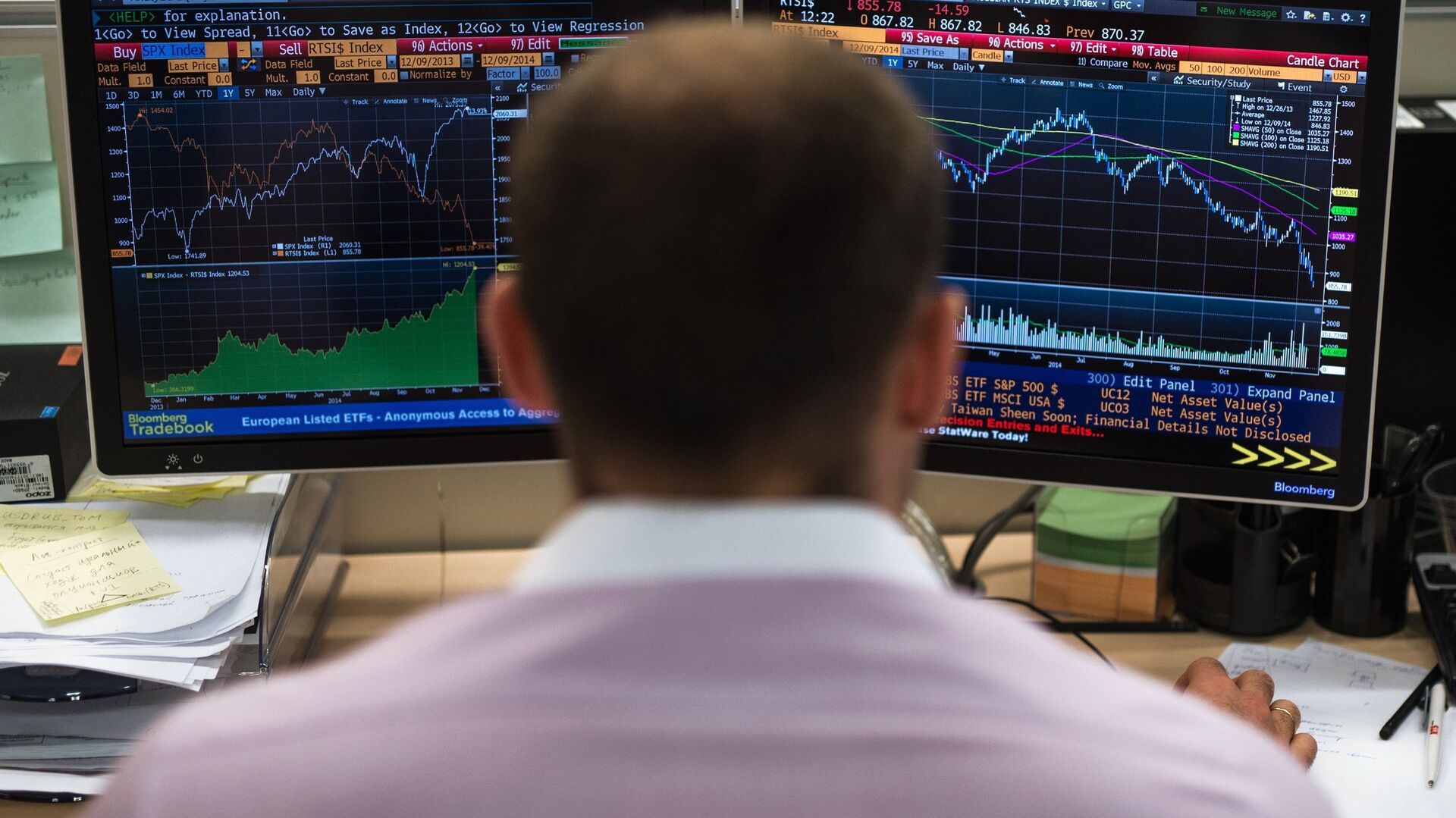https://sputnikglobe.com/20221001/russian-market-adapting-to-new-realities-learning-to-be-self-sufficient-us-investor-1101403192.html
Russian Market Adapting to New Realities, Learning to Be Self-Sufficient: US Investor
Russian Market Adapting to New Realities, Learning to Be Self-Sufficient: US Investor
Sputnik International
WASHINGTON (Sputnik) - The Russian market appears to be adjusting to the new normal and learning to be independent, Director of Navigator Principal Investors... 01.10.2022, Sputnik International
2022-10-01T06:12+0000
2022-10-01T06:12+0000
2022-10-01T06:12+0000
russia
russia
market
economy
https://cdn1.img.sputnikglobe.com/img/104020/66/1040206659_0:151:3107:1898_1920x0_80_0_0_24b96abc83686177641e714a55fd7d4f.jpg
"There is currently little in terms of relevance of the US economic data to the market events in Russia since the country's capital market has been insulated from the rest of the world in all practical terms - no foreign investors, no outflows or inflows of foreign capital - and is reacting to the fears of new economic and political sanctions and energy prices much more than to the policies of the US central bank," Shostak said. "The Russian market seems to be adapting itself to the new realities and learning to be self-sufficient."Shostak explained that the Russian market is learning to rely primarily on the domestic investors.The residents of the so-called "friendly" countries have begun more active purchases, most notably Asian financial Institutions, Shostak said.Shostak noted that currently Russian holdings of the US government bonds total only about $2 billion and the number used to be much higher."However, the Russian government has been steadily reducing its dollar holdings, something that started several years ago, prior to the conflict in Ukraine," he said. "While the number may sound impressive, Russia doesn't make it even into the top 35 investors globally, with the majority of these funds practically outside of Russia's control due to the sanctions."The loss of the $2 billion position will significantly erode the value of Russia's investment, he added, but its practical implications are irrelevant since the assets have already been effectively seized by the US government.Meanwhile, the Moscow Exchange, he added, has been trying hard to bring order to the markets, gradually allowing back non-resident investors to certain instruments, including derivatives, and prolonging trading hours.On February 24, Russia launched a special military operation in Ukraine after the breakaway republics of Donetsk and Luhansk requested help to defend them from intensifying attacks by Ukrainian forces. Russia said the aim of the special operation is to demilitarize and de-Nazify Ukraine and it targets solely the country's military infrastructure. In response, Western countries have imposed a comprehensive sanctions regime against Russia.
russia
Sputnik International
feedback@sputniknews.com
+74956456601
MIA „Rossiya Segodnya“
2022
Sputnik International
feedback@sputniknews.com
+74956456601
MIA „Rossiya Segodnya“
News
en_EN
Sputnik International
feedback@sputniknews.com
+74956456601
MIA „Rossiya Segodnya“
Sputnik International
feedback@sputniknews.com
+74956456601
MIA „Rossiya Segodnya“
russia, market, economy
Russian Market Adapting to New Realities, Learning to Be Self-Sufficient: US Investor
WASHINGTON (Sputnik) - The Russian market appears to be adjusting to the new normal and learning to be independent, Director of Navigator Principal Investors LLC, Kyle Shostak, told Sputnik.
"There is currently little in terms of relevance of the US economic data to the market events in Russia since the country's capital market has been insulated from the rest of the world in all practical terms - no foreign investors, no outflows or inflows of foreign capital - and is reacting to the fears of new economic and political sanctions and energy prices much more than to the policies of the US central bank," Shostak said. "The Russian market seems to be adapting itself to the new realities and learning to be self-sufficient."
Shostak explained that the Russian market is learning to rely primarily on the domestic investors.
"In addition, the US Treasury has released guidelines that allowed US holders to wind down their positions, the largest Wall Street firms have slowly resumed trading in the Russian government and corporate bonds," he said.
The residents of the so-called "friendly" countries have begun more active purchases, most notably Asian financial Institutions, Shostak said.
"Some positivity to the market will be infused by the realization that the price cap on the Russian oil cannot be enforced and that the US may not be in a real position to impose it on many emerging markets buyers of the Russian energy since they never implemented the anti-Russian sactions in the first place and are not going to do so in a foreseeable future," he added.
Shostak noted that currently Russian holdings of the US government bonds total only about $2 billion and the number used to be much higher.
"However, the Russian government has been steadily reducing its dollar holdings, something that started several years ago, prior to the conflict in Ukraine," he said. "While the number may sound impressive, Russia doesn't make it even into the top 35 investors globally, with the majority of these funds practically outside of Russia's control due to the sanctions."
The loss of the $2 billion position will significantly erode the value of Russia's investment, he added, but its practical implications are irrelevant since the assets have already been effectively seized by the US government.
Meanwhile, the
Moscow Exchange, he added, has been trying hard to bring order to the markets, gradually allowing back non-resident investors to certain instruments, including derivatives, and prolonging trading hours.
On February 24, Russia launched a special military operation in Ukraine after the breakaway republics of Donetsk and Luhansk requested help to defend them from intensifying attacks by Ukrainian forces. Russia said the aim of the special operation is to demilitarize and de-Nazify Ukraine and it targets solely the country's military infrastructure. In response, Western countries have imposed a comprehensive sanctions regime against Russia.


